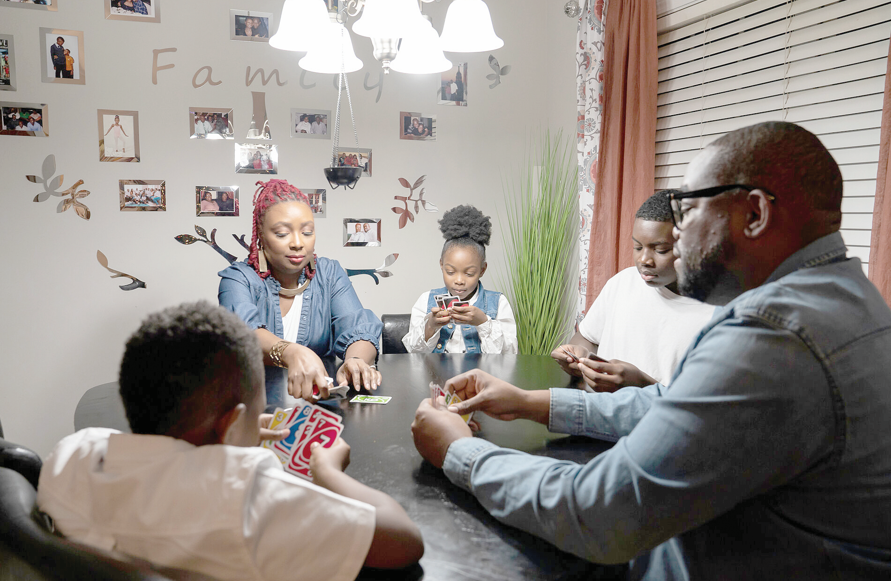Facing family gaslighting during the festive season

The holidays are arguably one of the most high-risk times when chronic forms of family gaslighting can occur. Throughout the year, you may have been able to distance yourself physically or mentally from a gaslighter, even if you happen to live nearby. Yet during the holidays, it is common to get everyone together with the expectation that people will get along.
Gaslighting is an insidious, sometimes covert, form of emotional abuse, repeated over time, that can happen in any type of relationship with a power dynamic. As depicted in the classic 1944 movie Gaslight, a gaslighter can lead a person to question their own memory, judgments, reality and, in extreme cases, their sanity.
Why it is harmful
Gaslighting that occurs in family relationships is difficult to get away from and tends to persist for years—if not a lifetime. Family gaslighters can be anyone—primary caregivers or parents, siblings, extended family, or stepfamily. The one constant thing, however, is the complexity of the entire family system and how it plays a role in the gaslighting dynamic.
When an entire family bears witness to gaslighting, and no one protects the victim (often out of fear of being targeted themselves), it can further perpetuate the distorted version of reality painted by the gaslighter. To help defend yourself against family gaslighting during the holidays, it is important to reinforce your boundaries through space in its many forms.
Gaslighting family lore
Much like the supply of adoration and praise a narcissist needs, a gaslighter craves control by creating instability and eroding self-esteem and confidence in others. This is why gaslighting family members will often seek out controversial topics of conversation to engage in and can sometimes present as a “high-conflict person.”
Other tactics that are common in chronic (or long-term) gaslighting dynamics include attempts to reinforce baseless or false narratives about those they target. It’s probable that any mistake, insecurity, or failure that occurred in the past will become woven into the gaslighter’s false narratives about their target. A common example could be if someone who is now in adulthood was a sensitive child, the gaslighter may repeat negative stories and blow them out of proportion, such as creating the image that the grown adult standing in front of them is still the little boy or girl who cannot handle themselves.
Because there is a rich history of which to pull from in families, much of it can be misremembered or forgotten over time. This can make it more likely the gaslighter will be able to confuse you or those in your family to believe the stories or narratives they create.
Create physical space
Proximity to their victim is what a gaslighter craves. According to research by Teresa Brennan of Cornell University US, mood, energy, and affect can be quite in a literal sense “felt”—and the closer proximity you are to negativity, the more powerful its effect.
To remedy this, you can gain space from the gaslighter at a holiday gathering by mindfully choosing to sit further away from them, not engaging in conversation, or removing yourself from group efforts with this person (such as not helping them set the table if possible).
Seek solitude
There appears to be a misconception that “family time” must all be spent together. While this can be true to an extent, it also does not mean you have to stop engaging in activities that ground you and bring you joy.
Taking time for yourself may look like maintaining your exercise regime while visiting family, going for a walk outdoors, offering to run to the store if something is needed, or staying overnight in a separate space from your family entirely if financially possible. Each moment alone increases your connection with your inner voice that the gaslighter wants to silence. Take this time to check in and listen to yourself.
Align with positivity
Choose to spend more time with a family member who you align with more closely. Even better, if they are willing to process your emotions with you about the family gathering, it can reinforce your mental boundaries and validate your experiences with the gaslighter.
Sometimes it is difficult to identify this person if the gaslighter has isolated you from other family members by causing discomfort in the family if someone aligns with you. If this is the case, simply spending more time with the person you feel most comfortable with can be soothing.
What matters most is you
The most important thing is to remain connected with yourself when being faced with family gaslighting. Speaking with a therapist, reaching out to a supportive friend, journaling and fact-checking your experience—or perhaps repeating the mantra “I do not own this” regarding the feelings, opinions, and perspectives of others in your family—can all be helpful. You deserve to protect your self-esteem and care for yourself first.
In the end, it is important to know that if the gaslighter is harming your mental health, you can always make the choice, albeit not an easy one, not to spend the holidays with your family. Many happy and healthy adults have adopted the practice of “chosen families” who provide the support and stability we all deserve.












